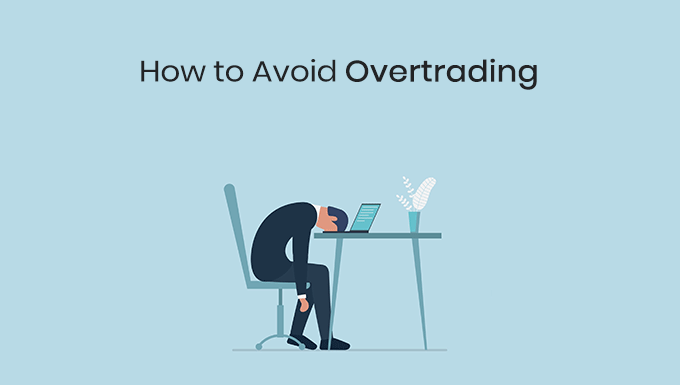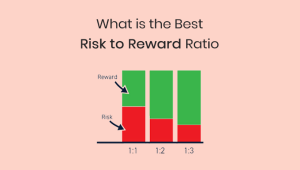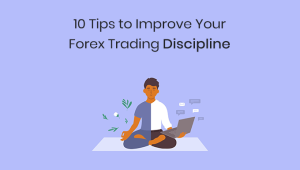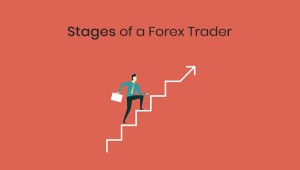Forex trading can be fun and profitable, but it can also be a slippery slope to overtrading. Overtrading is a common pitfall that many forex traders fall into, leading to poor decision-making, increased risk, and ultimately, losses. In this article, we will discuss what overtrading is, why it happens, and how you can avoid it.
What is Overtrading?
Overtrading is a term used to describe a situation where a trader makes too many trades in a short period, leading to a higher level of risk and reduced profitability. It is a common problem for new traders, but even experienced traders can fall into this trap if they do not have a well-defined trading plan.
Why Overtrading Happens?
Overtrading can happen for several reasons, including:
- Emotional trading: When traders let their emotions get in the way, they tend to make impulsive decisions that result in overtrading.
- FOMO (Fear of Missing Out): FOMO is a common cause of overtrading. Traders who fear missing out on a potentially profitable trade often end up taking unnecessary risks.
- Lack of discipline: Trading without a well-defined plan and strict rules can lead to overtrading.
- Addiction to trading: Some traders get addicted to trading and can’t stop even when they are losing money.
Why Overtrading is Bad for You?
Overtrading is bad for you because it can lead to several problems, including:
- Increased risk: The more trades you make, the higher the risk you take. Overtrading can lead to losing more money than you can afford.
- Reduced profitability: Overtrading can lead to poor decision-making, resulting in reduced profitability.
- Burnout: Overtrading can lead to burnout, causing you to lose interest in trading altogether.
- Stress: Overtrading can cause stress, leading to health problems and emotional distress.
How to Avoid Overtrading?
To avoid overtrading, you need to have a well-defined trading plan and stick to it. Here are some tips to help you avoid overtrading:
1. Have a Trading Plan
A forex trading plan is a set of rules that define your trading strategy. It should include your trading goals, risk tolerance, entry and exit points, and money management rules. Having a well-defined trading plan will help you make better decisions and avoid impulsive trading.
2. Stick to Your Plan
Once you have a trading plan, you need to stick to it. Avoid making impulsive trades based on emotions or FOMO. Stick to your plan, and only make trades that fit within your trading strategy.
3. Use Stop Loss Orders
Stop loss orders are orders that automatically close a trade when the price reaches a certain level. They are essential in limiting your losses and protecting your capital. Use stop loss orders to manage your risk and avoid overtrading.
4. Set Realistic Goals
Setting realistic goals is essential in avoiding overtrading. Don’t set unrealistic expectations or try to make a quick buck. Trading is a long-term game, and success comes from consistency and discipline.
5. Practice Patience
Patience is crucial in forex trading. Avoid the urge to make trades just because you feel like you should be doing something. Wait for the right opportunities to present themselves and stick to your trading plan.
6. Take Breaks
Taking breaks is essential in avoiding burnout and overtrading. Step away from your computer and take a break when you feel stressed or overwhelmed. This will help you clear your mind and come back to trading with a fresh perspective.
7. Keep a Trading Journal
Keeping a trading journal is a great way to track your progress and avoid overtrading. Write down your trades, including the reasons behind them and the outcomes. This will help you identify any patterns and improve your trading strategies.
8. Limit Your Exposure
Limiting your exposure to the market is essential in avoiding overtrading. Don’t trade more than you can afford to lose, and don’t put all your eggs in one basket. Diversify your portfolio and keep the risk to reward ratio at a manageable level.
Conclusion
Overtrading is a common reason why forex traders lose money, but it can be avoided. By having a well-defined trading plan, sticking to your plan, using stop loss orders, setting realistic goals, practicing patience, taking breaks, keeping a trading journal, and limiting your exposure, you can avoid overtrading and improve your trading strategies. Remember, trading is a long-term game, and success comes from consistency and discipline.






